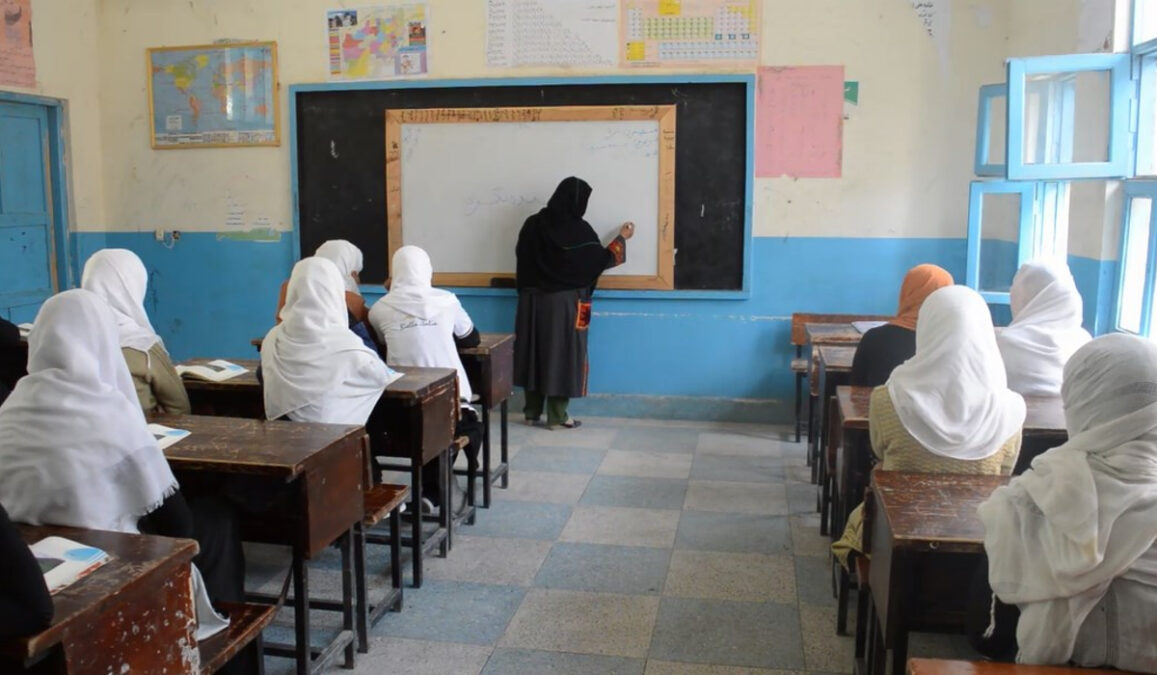After forcing them back into the home, the Taliban now cut women's salaries
Women in administrative positions who do not work regularly will see their salaries reduced to 5,000 Afghanis (US$ 70). Yet it is the Taliban regime that prevents women from leaving their home. Despite several rounds of talks, the international community has not yet found a solution to resolve the political and economic stalemate in Afghanistan.
Kabul (AsiaNews/Agencies) – After relegating them to the home, the Taliban have cut the salary of public sector female employees, the Taliban Ministry Finance said in a statement following a decree by Supreme Leader Hibatullah Akhundzada.
The revised policy states that actively employed female workers who do not attend their jobs regularly or fail to perform their duties as per their job description will have their monthly salaries and benefits capped at 5,000 Afghanis or US$ 70. This means a drop of up to 75 per cent in their wages.
Before the Taliban came back to power in August 2021, under the Western-backed Afghan government, some Afghan women could earn good money; for example, university professors were paid 35,000 Afghanis, while women in administrative posts could get up to 20,000 Afghanis, later reduced to 15,000 by the Taliban authorities.
With the country falling into the hands of the Islamic “students”, Afghan assets abroad were frozen so as not to fall into the hands of the new masters. The Biden administration moved US$ 3.5 billion to a Swiss trust fund to be used “for the benefit of the people of Afghanistan,” while another US$ 6 billion remain frozen.
Currently, more than 20 million people, about half of the population, live below the poverty line and today, after decades of war, it is often widows who have to take care of the family.
“It is impossible to live on this income," said the mother of a former elementary school teacher who until three years ago earned 0 a month. "Our financial problems have skyrocketed.”
Other women told local media that with this wage cut they can barely feed a family of seven members for two weeks.
This represents another violation of the freedoms of Afghan women, who no longer have access to higher education or free movement.
In March, the Taliban issued a decree that provides for stoning for so-called "moral crimes", such as sexual relations outside marriage or running away from home, often done to escape domestic violence. Not surprisingly, the number of suicides has increased.
“Making women stay at home is already a very big problem for us -- we are in a very bad mental and psychological condition -- and now that our salaries have decreased, this has only worsened,” said a 25-year-old woman who works for the Information and Culture Department outside Kabul.
The international community has failed so far to find a solution to Afghanistan’s political and economic stalemate.
Earlier this month, the third round of talks promoted by the United Nations ended in Doha, Qatar, with several governments present, including, for the first time, the Taliban, who had not been invited to the first round and refused to attend the second because of the presence of Afghan civil society groups, including some women's rights activists.
When the latter were excluded, the Taliban agreed to send a delegation.
After the predictable criticism, UN officials noted that no country officially recognises the Taliban government, despite the presence of some foreign embassies in Kabul.
“I would like to emphasize that this meeting and this process of engagement does not mean normalization or recognition,” said Rosemary DiCarlo, United Nations Under-Secretary-General for Political and Peacebuilding Affairs.
According to some experts, Mullah Hibatullah Akhundzada and his clerical coterie based in Kandahar continue to implement obscurantist policies, and are not interested in formal recognition of its government or financial assistance.
“We are involved in the process now that is going to be a long-term process. This is not easy going forward, and we will continue to try to do the best we can. It won’t make everybody happy,” DiCarlo added after the meeting in Doha.
A date has not yet been set for the next round of talks.
15/02/2022 14:28







.png)










